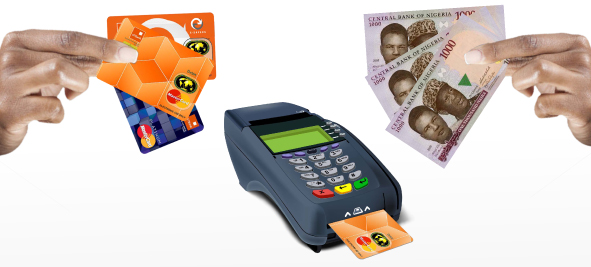Nigeria is an internet giant (yes …stay with me)
As of 2019, there are 184million mobile subscriptions in Nigeria, this translates to an 89% penetration rate; there are 125m internet users in Nigeria this again translates to a 60% penetration rate, to compare Africa is at 36% internet penetration. In Nigeria, 44% of users are on 4G smart network.
This looks like a nation that should have a robust mobile banking ecosystem, so let us look at Mobile Banking. In the latest Enhancing Financial Inclusion and Access Report for 2018, Nigeria is listed as having an adult population of 99million. Of this, only 39.7% are termed banked, with only 3.3% who use mobile money with only 1.3% having a loan with a bank. Unbelievable data, in Africa’s largest economy, with 112million internet users and 87% internet penetration as 2018, only 3.3% of the banking population use mobile banking. It gets worse, only 1.7% are actual registered mobile money users.
READ: What Nigerian banks consider before granting personal loans
Why don’t Nigerians use Mobile Money? A whopping 83% say they are unaware of mobile money. A further 5.7% say they do not know mobile money, thus 89% have no clue about mobile money. The data shows that 60% of the banking population or 59.4million Nigerians do not use mobile money or banking accounts. The data is further reveling, as 97% of subsistence farmers and business owners (farming, non-farming and services) receive their income in cash. This group is the main target for mobile banking as they all have phones, but no bank account.
Why does Nigeria still have 82% of Nigerians receiving cash when internet penetration is over 60%?
READ: Zenith Bank blows past Access Bank as customer deposits cross N4 trillion
The answer is simple, mobile money has been under the regulatory overview of the Central Bank of Nigeria (CBN). The CBN has viewed mobile bank by the suffix “Banking” and is regulating that sector like banks. For example, the CBN just released the guidelines for Payment Service Banks (PSB), that, according to the CBN have the objective of “promoting financial inclusion and access to financial services for the low-income earners and unbanked segments.” I recall going to Kenya and friends buying roasted fish from a roadside vendor and the lady, a “buka operator” was a Safaricom PSB agent. Back then, Safaricom was regulated by the telecom’s regulator not the central bank.
READ ALSO: Is MTN getting too big?
The CBN alone should not license PSBs, payment systems are not just carried out by banks but by an ecosystem of networks including post offices, cooperatives, etc. The CBN is making the same mistake with PSB as it has made with commercial banks which is, selling the licenses so expensive that most banks go after the same high-income urban dwellers, ignoring the low income, cash-heavy, rural dwellers. The PSBs ecosystem can and should be blue sky registration thus allowing any vendor, including the post office to register postal carriers who desire a PSB license and NCC can license telecom or fintech companies.
The role of the Central Bank should be the creation of a seamless network for these new PSBs to interface with traditional commercial banks. Can Nigeria dare to imagine an environment where PSB licenses are set at a nominal N100,000.00? This drops the huge barrier to entry and will attract more entrants to this opportunity. For instance, farming groups and cooperatives can deploy PSB platforms to serve their members.
READ: Official: Nigerian Treasury bills calendar for Q4 2020
The CBN is also playing favourites in the Nigerian economy and seeking to protect the turf of banks from competition from the Telcos. The guidelines for PSB bar them from accepting closed scheme electronic value (airtime) as a form of deposit or payment. Why? Now many Nigerians use airtime as a form of currency and cash transfer. The PSBs should be seeking to deepen the use of non-cash alternatives especially as digital card can be tracked. The CBN also bars PSB from giving any kind of loans. Why can’t PSBs give loans? Why can’t a cassava cooperative operate a PSB platform and issue loans of a maximum N50,000 to her members? Banks have achieved only 1.3% penetration rate for loans, why bar PSBs?
Nigeria can indeed do better.
